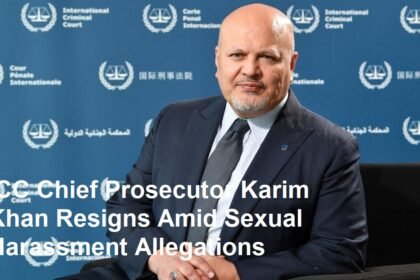On Thursday, May 15, 2025, U.S. President Donald Trump visited the iconic Sheikh Zayed Grand Mosque in Abu Dhabi, United Arab Emirates, as part of his official Middle East tour. This visit was notable not only for its diplomatic significance but also for the symbolic message it conveyed, given President Trump’s complex history with Muslim-majority countries and his evolving stance on Islam and the Middle East.
The Sheikh Zayed Grand Mosque, one of the largest and most beautiful mosques in the world, is a symbol of the UAE’s rich Islamic heritage and cultural openness. During his visit, President Trump was accompanied by UAE President Sheikh Mohamed bin Zayed Al Nahyan, who personally welcomed him and toured the mosque grounds together. The mosque was closed for the day in honor of the U.S. President’s visit, a rare gesture that underscored the importance of the occasion and the strong ties between the United States and the UAE.
President Trump expressed admiration for the mosque’s stunning architecture and cultural significance, remarking, “Isn’t this beautiful? It is so beautiful. This is an incredible culture.” His comments reflected a softer tone compared to his earlier years in politics, when he had made controversial statements about Muslim communities and mosques. This visit, therefore, marked a moment of diplomatic outreach and cultural respect, signaling a willingness to engage more constructively with the Muslim world.
The visit to the mosque was part of a broader agenda during Trump’s Middle East tour, which included high-level meetings and significant economic agreements. Notably, the United States and the UAE announced a landmark $1.4 trillion investment deal focused on advancing artificial intelligence technologies over the next decade. This partnership highlights the strategic economic collaboration between the two countries and their shared interest in innovation and technological development.
In addition to the mosque visit and economic agreements, President Trump received the Order of Zayed, the UAE’s highest civilian honor, during a bilateral meeting with Sheikh Mohamed bin Zayed at the Qasr al Watan (Palace of the Nation). This prestigious award recognized Trump’s efforts to strengthen U.S.-UAE relations and his role in fostering regional stability and cooperation.
The visit also served to reinforce the strategic partnership between the United States and the Gulf region, particularly in areas of security, counterterrorism, and economic development. The UAE has been a key ally in the Middle East, and the close relationship with the U.S. is vital for addressing regional challenges and promoting peace.
President Trump’s tour of the Sheikh Zayed Grand Mosque and his engagement with UAE leadership came amid a complex geopolitical landscape in the Middle East. The region continues to face challenges such as conflicts, political transitions, and economic diversification efforts. The visit underscored the importance of diplomacy, cultural understanding, and economic cooperation in navigating these issues.
Public and media reactions to the visit were mixed but generally acknowledged the significance of the gesture. For many, the mosque visit represented a positive step toward bridging divides and fostering mutual respect between the United States and Muslim-majority countries. It also highlighted the evolving nature of U.S. foreign policy in the region under Trump’s leadership.
In conclusion, President Donald Trump’s visit to the Sheikh Zayed Grand Mosque in Abu Dhabi on May 15, 2025, was a landmark moment in his Middle East tour. The visit combined cultural diplomacy with strategic economic and political engagement, reflecting a multifaceted approach to strengthening ties with the UAE and the broader region. As the United States and the UAE continue to collaborate on various fronts, this visit stands as a symbol of respect, partnership, and shared aspirations for peace and progress.









